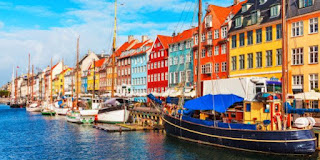I was a medical student at the University of Pittsburgh, on a clinical rotation in head & neck surgery. I was in the operating room with a nationally admired surgical specialist named Eugene Myers, the editor of a major textbook in this discipline.
Many of the patients had cancers of the mouth or throat. Surgery for them typically involved removal of cancerous tissue and reconstruction to make it possible to retain essential functions, such as speech and swallowing.
It was also common to explore the neck to identify and remove lymph nodes to which cancer may have spread. This is called a radical neck dissection.
Such surgery requires great skill and precision. It is very laborious, tedious, and time-consuming. I recall one operation that took 16 hours. For a medical student the experience might be torture, except that Dr. Myers was an engaging teacher, and he played recordings of classical music in the operating room.
For the entire 16 hours I was wearing surgical scrubs, over which was a surgical gown. I wore sterile surgical gloves.
And guess what else? Yes! A surgical mask.
These days I am working in a medical facility in which protocol calls for me to wear an N95 mask from the beginning of my workday to the end. In this setting I get to take the mask off to eat or drink during my breaks. This means that each day I am wearing an N95 for at least 7 hours.
If you know me, you know that I can be a complainer. I complain about policies I don't like, rules with which I disagree, directives that seem nonsensical or misguided.
Guess what has never made the list of things I complain about?
That's right: wearing a mask.
What's the big deal? I have found it no more difficult to get used to wearing a mask than it was to get used to wearing a seatbelt in an automobile more than half a century ago.
If you think wearing a mask is a burden, a nuisance, an imposition, wait until you see what it's like being sick enough with COVID-19 to be a patient in the hospital, or to be in the ICU, or to have a plastic tube in your trachea, connected to a mechanical ventilator. Or maybe these things won't happen to you, but to someone you care about. Chances are you won't be able to visit that person in the hospital. You won't get to hold your loved one's hand. If you get to say goodbye, it will be because some young doctor or nurse has a smartphone or tablet to connect you with your mother, your sister, your grandfather, or your best friend for a virtual farewell.
I assure you, that's just not the same.
Please think about all this when you want to grouse about wearing a mask. Life is full of inconveniences. Some of them are really a bother. Others are trivial. This one is trivial, and it serves the purpose of controlling the spread of a disease that kills. If you are looking at benefit versus burden, this is an easy one to calculate.
Be smart. Be a good person. Do the right thing. Wear a mask.

















